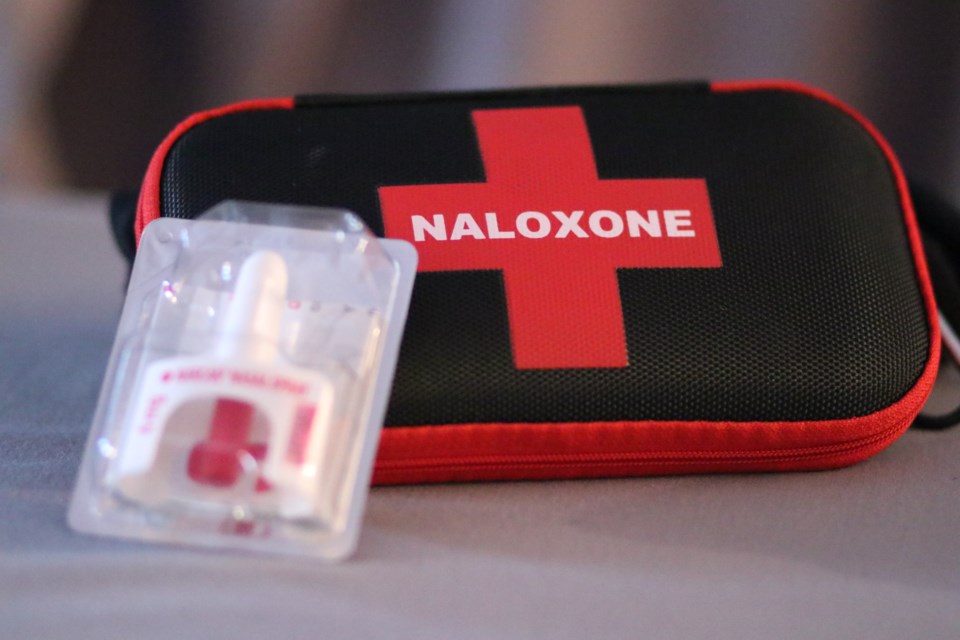Workplaces in Ontario are stepping up for their employees' safety.
“It’s a proactive step,” said Lisa MacIsaac, Red Cross national coordinator compliance and strategic relationships.
As of June 1, the Occupational Health and Safety Act requires workplaces to have naloxone on hand if they have reason to believe that an employee is at risk for an overdose. Naloxone is a medication that can temporarily reverse the effects of an opioid overdose.
Businesses also need to have somebody trained to "handle an episode with opioid poisoning," said MacIsaac.
Training for the use of the kits and how to recognize when they’re needed is being provided by the Canadian Red Cross and St. John’s Ambulance.
MacIsaac said the course is provided for free to two employees online, and takes about an hour to complete.
“It’s self-directed,” she said. “Once the two are trained, then we will automatically send out the kit to the employer.”
She said that they’ve received a lot of requests for training across the province since the requirement went into effect at the beginning of the month.
“We’ve had over 1,000 applications from employers in Ontario,” said MacIsaac.
Localized numbers for Timmins or Northern Ontario were not made available by press time.
There have been a lot of requests from workplaces that are not usually at a desk, she said.
“A lot of construction companies have shown an interest in the program, so of course their workers are doing things all day long,” said MacIsaac. “This is something they can do during some downtime, so there’s the convenience of doing the training on their own time.”
For those who are looking for larger group training, or want to learn more about naloxone on their own though, the Porcupine Health Unit offers walk-in and larger group education.
“In our health unit area, there are over 40 naloxone distribution sites,” said Tina Brunet, a Porcupine Health Unit coordinator for the harm reduction program. “They can provide training very quickly, you do not need a health card to receive this training and you’ll get a kit.”
In 2019, the local health unit handed out 2,600 kits and refills. In 2022, 6,500 were distributed.
“As a community, we’re doing a better job of talking about the opioid crisis, and acknowledging that this crisis impacts most of us, and trying to reduce stigma,” said Brunet. “So people are more apt to get the support they need, including friends, families and loved ones getting naloxone for those at risk of overdose.”
Brunet said that the training goes from absolute beginners to those who have used the kits in the past.
“If we have someone who has maybe administered naloxone and they’ve done it multiple times, that training might be a lot shorter, but we will highlight some key facts, like calling 911,” she said. “On the flip side, we may have someone who has heard of naloxone, but has zero experience and zero knowledge, so that training would cover A-Z.”
The workplace requirements are specific to employees that may be using and may be at risk of an overdose.
It does not require businesses to provide naloxone kits for customers or other community members.
“This could be a possibility at your worksite,” said MacIsaac. “Most folks are trying to get the word out that opioid poisoning can happen anywhere, there’s no community or group of people that this is going to hit particularly, it can happen any time, anywhere.”
“The Workplace Naloxone Program is the ministry’s way of kickstarting employers to get them started,” said MacIsaac. “The program covers the first two employees trained and the kit.”
Those interested in training for their workplace, are encouraged to reach out to the Red Cross online or reach out to [email protected].
“It’s all about awareness and getting the word out there, and how you can possibly help somebody,” said MacIssac.



